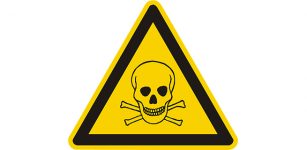Contamination in Law – A Brief Guide

Deliberately contaminating goods can lead to criminal charges under the Crimes Act 1900.
Contamination can be a serious charge and if you have been accused of this offence, it’s important that you take it seriously and obtain legal advice from an experienced criminal lawyer if you want to avoid a criminal conviction and a potentially harsh penalty.
There are a number of different penalties you face if you are convicted of contamination. In law, the offence of contamination comes with a maximum sentence of 14 years’ imprisonment, depending on whether it is aggravated or not and whether anyone was injured or died as a result of the contamination.
Other penalties can include a fine, a suspended sentence, a community service or a good behaviour bond.
Here is a brief overview of the offences of contamination and aggravated contamination, and what you can do to defend yourself if you have been charged with contamination.
What is contamination?
The legal offence of contamination applies to the contamination of goods.
To be able to convict you of contamination, the prosecution will need to show beyond a reasonable doubt that you contaminated goods and that you did it intentionally to cause public alarm or to cause economic loss through the contamination being made public.
Under this legislation, “goods” can be taken to mean any substance or article, whether it is intended for human consumption or not.
Goods can be natural or manufactured, and they can also be incorporated or mixed with other goods.
Economic loss can be caused through members of the public not using the goods or similar goods, and the costs involved in dealing with public alarm or anxiety about the contaminated products.
What is aggravated contamination?
Aggravated contamination is more serious than contamination.
Aggravated contamination takes place when there are certain circumstances surrounding the alleged offence.
This can include if someone dies or incurs grievous bodily harm as a result of the contamination of the goods, or if the prosecution can prove that there was an intention to cause grievous bodily harm or death.
Aggravated contamination can also take place in circumstances where the contamination takes place in conjunction with an unwarranted demand by the alleged offender.
The maximum penalty for aggravated contamination is 14 years’ imprisonment if you are found guilty.
However, there are a range of other penalties that may be imposed instead of prison such as a fine, good behaviour bond or community service.
You may even be able to escape a criminal conviction altogether if the offence is not too serious and you have strong mitigating factors.
What are the defences for a contamination charge?
If you have been charged with contamination it’s important to seek experienced legal advice as soon as possible.
Even if you plan to plead guilty to the charge, there may be mitigating circumstances which could lead to a less severe penalty or avoiding a criminal record altogether, and an experienced lawyer will be able to help you determine what you can do to ensure that you get fair treatment and avoid the maximum penalty.
If you are planning to plead not guilty to a contamination charge, your defence will depend on your individual circumstances.
In order to convict you for a charge of contamination or aggravated contamination, the prosecution will need to be able to prove that you intentionally contaminated the goods.
If you can show that the contamination was unintentional or the result of a genuine mistake you may be able to avoid conviction.
If you are facing an aggravated contamination charge you may be able to defend yourself or have the charges reduced to contamination by showing that the aggravated circumstances weren’t there.
Your criminal defence lawyer will be able to advise you on your best course of action if you are facing contamination charges and give you an idea of the potential outcome.
Receive all of our articles weekly
Author






